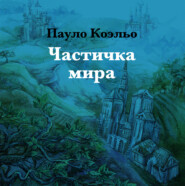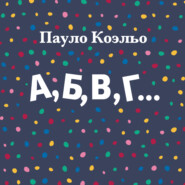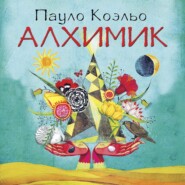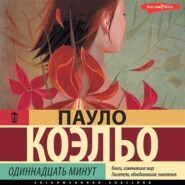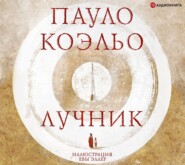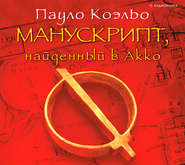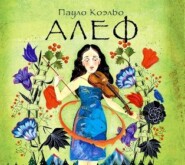По всем вопросам обращайтесь на: info@litportal.ru
(©) 2003-2024.
✖
Like the Flowing River: Thoughts and Reflections
Автор
Год написания книги
2019
Настройки чтения
Размер шрифта
Высота строк
Поля
God’s Signs (#litres_trial_promo)
Alone on the Road (#litres_trial_promo)
The Funny Thing About Human Beings (#litres_trial_promo)
An Around-the-World Trip After Death (#litres_trial_promo)
Who Would Like This Twenty-Dollar Bill? (#litres_trial_promo)
The Two Jewels (#litres_trial_promo)
Self-Deception (#litres_trial_promo)
The Art of Trying (#litres_trial_promo)
The Dangers Besetting the Spiritual Search (#litres_trial_promo)
My Father-in-law, Christiano Oiticica (#litres_trial_promo)
Thank You, President Bush (#litres_trial_promo)
The Intelligent Clerk (#litres_trial_promo)
The Third Passion (#litres_trial_promo)
The Catholic and the Muslim (#litres_trial_promo)
Evil Wants Good to Prevail (#litres_trial_promo)
The Law of Jante (#litres_trial_promo)
The Old Lady in Copacabana (#litres_trial_promo)
Remaining Open to Love (#litres_trial_promo)
Believing in the Impossible (#litres_trial_promo)
The Storm Approaches (#litres_trial_promo)
Some Final Prayers (#litres_trial_promo)
More about Paulo Coelho (#litres_trial_promo)
Author Biography: Paulo Coelho (#litres_trial_promo)
Paulo Coelho The Witch of Portobello (#litres_trial_promo)
Heron Ryan, 44, journalist (#litres_trial_promo)
Life is a journey (#litres_trial_promo)
Feeling inspired? (#litres_trial_promo)
Also by Paulo Coelho (#litres_trial_promo)
Copyright (#litres_trial_promo)
About the Publisher (#litres_trial_promo)
Preface (#ulink_07c7f044-ea62-5ffb-9895-a98a128aaa26)
When I was fifteen, I said to my mother: ‘I’ve discovered my vocation. I want to be a writer.’
‘My dear,’ she replied sadly, ‘your father is an engineer. He’s a logical, reasonable man with a very clear vision of the world. Do you actually know what it means to be a writer?’
‘Being someone who writes books.’
‘Your Uncle Haroldo, who is a doctor, also writes books, and has even published some. If you study engineering, you can always write in your spare time.’
‘No, Mama. I want to be a writer, not an engineer who writes books.’
‘But have you ever met a writer? Have you ever seen a writer?’
‘Never. Only in photographs.’
‘So how can you possibly want to be a writer if you don’t really know what it means?’
In order to answer my mother’s question, I decided to do some research. This is what I learned about what being a writer meant in the early 1960s:
(a) A writer always wears glasses and never combs his hair. Half the time he feels angry about everything and the other half depressed. He spends most of his life in bars, arguing with other dishevelled, bespectacled writers. He says very ‘deep’ things. He always has amazing ideas for the plot of his next novel, and hates the one he has just published.
(b) A writer has a duty and an obligation never to be understood by his own generation; convinced, as he is, that he has been born into an age of mediocrity, he believes that being understood would mean losing his chance of ever being considered a genius. A writer revises and rewrites each sentence many times. The vocabulary of the average man is made up of 3,000 words; a real writer never uses any of these, because there are another 189,000 in the dictionary, and he is not the average man.
(c) Only other writers can understand what a writer is trying to say. Even so, he secretly hates all other writers, because they are always jockeying for the same vacancies left by the history of literature over the centuries. And so the writer and his peers compete for the prize of ‘most complicated book’: the one who wins will be the one who has succeeded in being the most difficult to read.
(d) A writer understands about things with alarming names, like semiotics, epistemology, neoconcretism. When he wants to shock someone, he says things like: ‘Einstein is a fool’, or ‘Tolstoy was the clown of the bourgeoisie.’ Everyone is scandalized, but they nevertheless go and tell other people that the theory of relativity is bunk, and that Tolstoy was a defender of the Russian aristocracy.
(e) When trying to seduce a woman, a writer says: ‘I’m a writer’, and scribbles a poem on a napkin. It always works.
(f) Given his vast culture, a writer can always get work as a literary critic. In that role, he can show his generosity by writing about his friends’ books. Half of any such reviews are made up of quotations from foreign authors and the other half of analyses of sentences, always using expressions such as ‘the epistemological cut’, or ‘an integrated bi-dimensional vision of life’. Anyone reading the review will say: ‘What a cultivated person’, but he won’t buy the book because he’ll be afraid he might not know how to continue reading when the epistemological cut appears.
(g) When invited to say what he is reading at the moment, a writer always mentions a book no one has ever heard of.
(h) There is only one book that arouses the unanimous admiration of the writer and his peers: Ulysses by James Joyce. No writer will ever speak ill of this book, but when someone asks him what it’s about, he can’t quite explain, making one doubt that he has actually read it.
Armed with all this information, I went back to my mother and explained exactly what a writer was. She was somewhat surprised.
‘It would be easier to be an engineer,’ she said. ‘Besides, you don’t wear glasses.’







